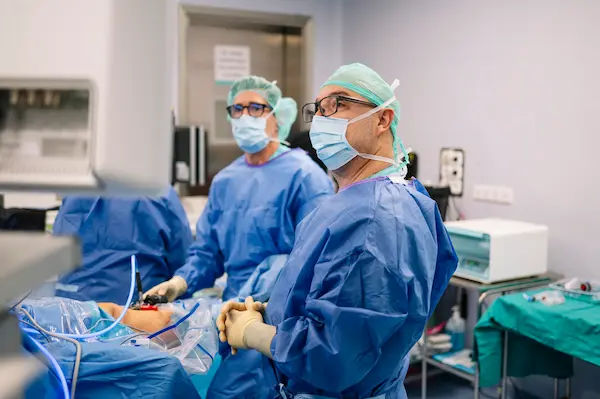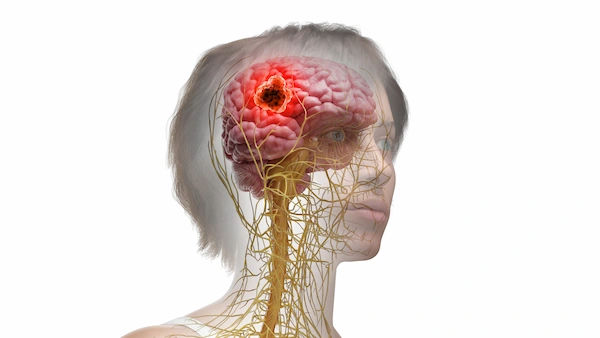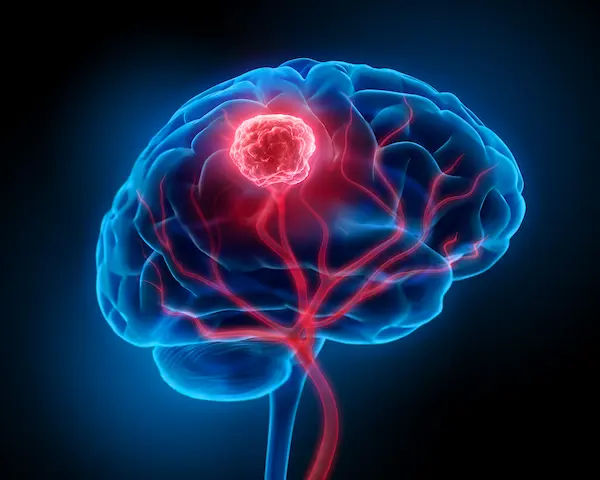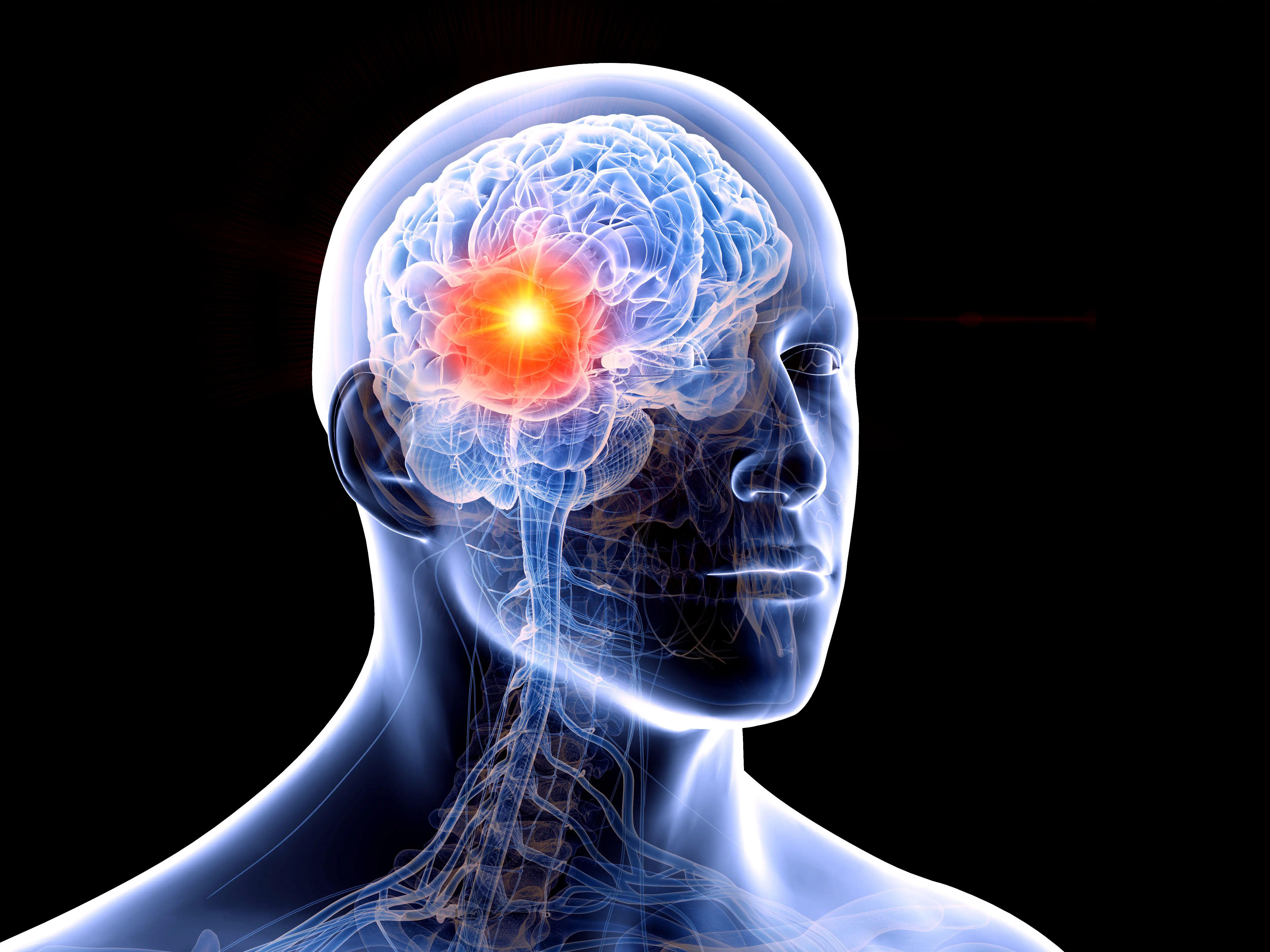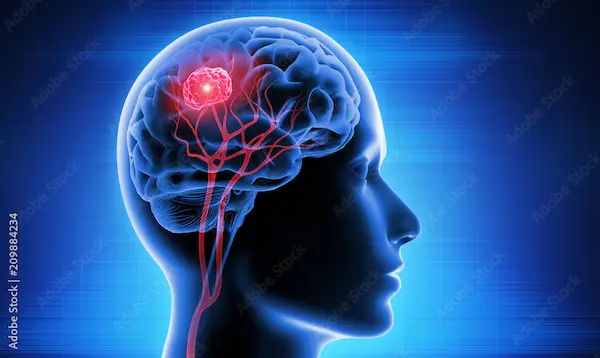Guide to Does Brain Tumor Mean I Am Suffering Cancer
Learn the key differences between brain tumours and brain cancer, including types, symptoms, and treatment options for better awareness and care.

Written by Dr. M L Ezhilarasan
Reviewed by Dr. Shaik Abdul Kalam MD (Physician)
Last updated on 13th Jan, 2026

Introduction
Receiving news of a brain tumour is an overwhelming experience, and it’s natural for your mind to immediately jump to the word "cancer." However, here is the most crucial fact to hold onto: not all brain tumours are cancerous. The terms "brain tumour" and "brain cancer" are not interchangeable. Understanding the distinction is the first step in navigating this challenging diagnosis with clarity and hope. This guide will demystify these terms, explain how doctors tell the difference, and outline what the various diagnoses can mean for your health and treatment journey. We will break down the complex medical jargon into clear, actionable information, empowering you to have informed conversations with your healthcare team.
What Exactly is a Brain Tumour?
At its core, a brain tumour is a mass or growth of abnormal cells in or around the brain. Our bodies are made up of trillions of cells that normally grow, divide, and die in a controlled manner. A tumour develops when this process goes awry. Old cells don't die when they should, and new cells form when the body doesn't need them. This buildup of extra cells creates a mass, which we call a tumour.
The Basics of Uncontrolled Cell Growth
The skull is a rigid structure, designed to protect the delicate brain tissue inside. Any unnecessary growth within this confined space can cause problems by pressing on sensitive areas of the brain, increasing pressure inside the skull, and interfering with normal brain function. This is true regardless of whether the tumour is benign or malignant. The key difference lies in the behavior of the cells themselves.
Consult a Neurosurgeon for the best advice
The Fundamental Question: Benign vs. Malignant
This is the central distinction that answers the question, "Does a brain tumour mean cancer?"
Malignant Tumour = Cancerous Benign Tumour = Non-Cancerous
Characteristics of a Benign (Non-Cancerous) Brain Tumour
Think of a benign tumour as a resident that stays in one place. Its cells are generally well-differentiated, meaning they look relatively similar to normal cells.
- Slow Growth: They typically grow slowly.
- Distinct Borders: They often have clear edges, making them easier to surgically remove entirely.
- Non-Invasive: They do not invade the surrounding healthy brain tissue. They may press on it, but they don't intermingle with it.
- No Metastasis: They will not spread to distant parts of the body or other areas of the brain (though some can spread via cerebrospinal fluid pathways).
Common examples include meningiomas (tumours arising from the membranes covering the brain) and schwannomas.
Characteristics of a Malignant (Cancerous) Brain Tumour
A malignant tumour is an invader. Its cells are poorly differentiated, looking very abnormal under a microscope.
- Rapid Growth: They tend to grow quickly.
- Invasive: The primary danger is invasion. These tumours have finger-like projections that infiltrate and destroy the surrounding healthy brain tissue, making complete surgical removal extremely difficult.
- Metastasis: They can spread to other parts of the central nervous system, though true primary brain cancers less commonly spread to other organs like the lungs or liver. tumours that start elsewhere in the body (e.g., lung, breast) and spread to the brain are always considered malignant metastases.
The most common primary malignant brain tumour in adults is glioblastoma.
Why Even a Benign Tumour Can Be Serious
It's a common misconception that "benign" means "harmless." Because the skull is a closed space, a benign tumour located in a critical area like the brainstem or near major nerves can cause significant neurological problems, including vision loss, difficulty speaking, or paralysis. Its location can be just as important as its type. Therefore, even a non-cancerous brain tumour often requires treatment.
How Doctors Determine if a Brain Tumour is Cancerous
You cannot tell if a tumour is benign or malignant from symptoms or a standard MRI scan alone. While an MRI can show the tumour's size, location, and how it affects the surrounding brain (e.g., whether it appears to have clear borders or is diffuse), the definitive diagnosis comes from analysing the tumour's cells.
The Role of the Biopsy: Your Definitive Answer
A biopsy is a procedure where a neurosurgeon removes a small sample of the tumour tissue. This is the only way to get a conclusive diagnosis. The tissue sample is sent to a neuropathologist, who examines it under a microscope. They look at the cells' appearance, how quickly they are dividing, and whether they have the characteristics of benign or malignant cells. If your condition requires a biopsy or further investigation, consulting a specialist neurologist or neurosurgeon is a critical next step. Platforms like Apollo24|7 can help you connect with top specialists for an initial consultation.
Grading the Tumour: What "Stage" Means for the Brain
While other cancers are "staged" based on spread, brain tumours are "graded" (Grade I-IV) based on how the cells look under the microscope.
- Grade I & II (Low-Grade): These tumours are slower-growing and less aggressive. Grade I tumours are often benign.
- Grade III & IV (High-Grade): These tumours are malignant, with Grade IV (like glioblastoma) being the most
aggressive and fast-growing.
Recognising the Signs: Symptoms of a Brain Tumour
Symptoms depend on the tumour's size, location, and rate of growth. They can be subtle or severe. General symptoms caused by pressure inside the skull include:
- New, persistent, or worsening headaches.
- Unexplained nausea or vomiting.
- Seizures, especially in someone with no history of them.
- Vision problems, such as blurred or double vision.
Focal symptoms related to the tumour's location can include:
- Weakness or numbness in an arm or leg.
- Difficulty with speech, balance, or hearing.
- Personality or behavioral changes.
- Memory problems.
If you experience persistent or worsening neurological symptoms like these, it is essential to consult a doctor. You can book an online consultation with a neurologist on Apollo24|7 to discuss your concerns and determine the necessary next steps, which may include imaging tests.
If It's Not Cancer, What Causes a Brain Tumour?
For the vast majority of brain tumours, the exact cause is unknown. Only a small percentage have been linked to specific risk factors, such as exposure to high doses of ionising radiation or rare genetic syndromes (e.g., Neurofibromatosis). Research is ongoing, but for most individuals, there is no identifiable, preventable cause.
Treatment Paths: It’s All About the Diagnosis
Treatment is highly personalised and depends entirely on the tumour type, grade, location, and your overall health.
Treatment Options for Benign Tumours
- Monitoring: Small, slow-growing, asymptomatic benign tumours may only require regular MRI scans to watch for changes.
- Surgery: The primary treatment is often complete surgical removal (resection), which can be curative if the tumour is in an accessible location.
Treatment Options for Malignant Tumours
Treatment is typically more aggressive and multimodal, often involving a combination of:
- Surgery: To remove as much of the tumour as safely possible (debulking).
- Radiation Therapy: Uses high-energy beams to target and kill cancer cells remaining after surgery.
- Chemotherapy: Uses drugs to destroy cancer cells.
- Targeted Therapy & Immunotherapy: Newer treatments that target specific abnormalities in cancer cells or boost the immune system to fight cancer.
Conclusion
In conclusion, while all brain cancers are tumours, not all brain tumours are cancerous. Understanding the differences between benign and malignant growths is crucial for timely diagnosis, effective treatment, and better outcomes. Awareness of symptoms, risk factors, and available therapies empowers patients and caregivers to make informed decisions and seek appropriate medical care.
Consult a Neurosurgeon for the best advice
Consult a Neurosurgeon for the best advice

Dr Diwakar Shankar
Neurosurgeon
10 Years • MS (Gen Surgery), MCh (Neurosurgery), DNB (Neurosurgery), Fellowship Spine Surgery
Lucknow
Apollomedics Super Speciality Hospital, Lucknow

Dr. Somesh Desai
Neurosurgeon
22 Years • MBBS; MS(Gen Sur); M.Ch (NeuroSurg.), Fellow ship (Melbourne), Spine Surgery
Ahmedabad
Apollo Hospitals Gandhinagar, Ahmedabad
(25+ Patients)

Brig. Dr. Saurabh Kumar Verma
Neurosurgeon
22 Years • MS (General Surgery), MCh (Neurosurgery)
Lucknow
Apollomedics Super Speciality Hospital, Lucknow
(75+ Patients)
Dr. Aniket Phutane
Neurosurgeon
6 Years • Mbbs,MCH Nero Surgen
Hyderabad
Apollo Hospitals D R D O kanchanbagh, Hyderabad

Dr. Deep Dutta
Neurosurgeon
10 Years • MS, Mch
Guwahati
Apollo Hospitals G S Road, Guwahati
(50+ Patients)
Consult a Neurosurgeon for the best advice

Dr Diwakar Shankar
Neurosurgeon
10 Years • MS (Gen Surgery), MCh (Neurosurgery), DNB (Neurosurgery), Fellowship Spine Surgery
Lucknow
Apollomedics Super Speciality Hospital, Lucknow

Dr. Somesh Desai
Neurosurgeon
22 Years • MBBS; MS(Gen Sur); M.Ch (NeuroSurg.), Fellow ship (Melbourne), Spine Surgery
Ahmedabad
Apollo Hospitals Gandhinagar, Ahmedabad
(25+ Patients)

Brig. Dr. Saurabh Kumar Verma
Neurosurgeon
22 Years • MS (General Surgery), MCh (Neurosurgery)
Lucknow
Apollomedics Super Speciality Hospital, Lucknow
(75+ Patients)
Dr. Aniket Phutane
Neurosurgeon
6 Years • Mbbs,MCH Nero Surgen
Hyderabad
Apollo Hospitals D R D O kanchanbagh, Hyderabad

Dr. Deep Dutta
Neurosurgeon
10 Years • MS, Mch
Guwahati
Apollo Hospitals G S Road, Guwahati
(50+ Patients)
More articles from Brain Tumor
Frequently Asked Questions
1. Can a benign brain tumour turn into cancer?
Yes, though it is rare. Some low-grade (benign or less aggressive) tumours can transform into higher-grade (malignant) tumours over time. This is why follow-up monitoring is crucial even for benign diagnoses.
2. What is the survival rate for a benign vs. malignant brain tumour?
Survival rates vary dramatically based on the specific tumour type, grade, location, and the patient's age and health. Generally, the prognosis for a benign tumour that can be completely removed is excellent. For malignant tumours, prognosis depends on the grade and how well it responds to treatment.
3. Are headaches always a sign of a brain tumour?
No. The vast majority of headaches are caused by less serious conditions like tension, migraines, or sinus issues. Headaches related to brain tumours are often persistent, worsen over time, may be worse in the morning, and are frequently accompanied by other symptoms like nausea or neurological changes.
4. What is the difference between a primary and a metastatic brain tumour?
A primary brain tumour originates in the brain itself (e.g., glioma, meningioma). A metastatic (or secondary) brain tumour occurs when cancer cells from another part of the body (like the lung or breast) spread to the brain. All metastatic brain tumours are cancerous.
5. If a brain tumour is found, what questions should I ask my doctor?
Essential questions include: Is the tumour benign or malignant? What is the specific type and grade? What are all my treatment options? What are the goals of treatment (curative or to manage symptoms)? What are the potential side effects of treatment? Should I get a second opinion?
